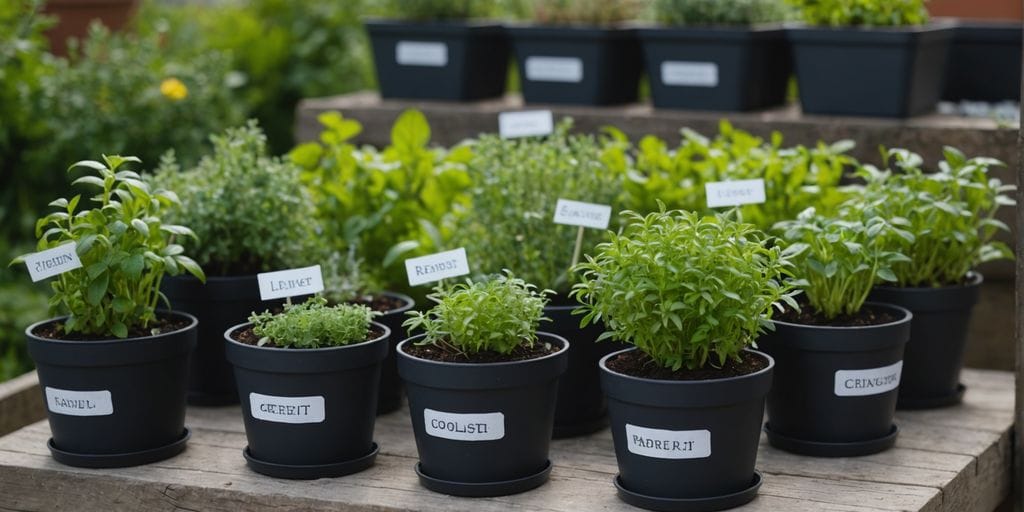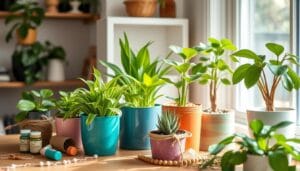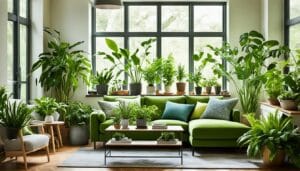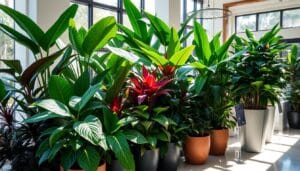Table of Contents
Starting your own herb garden is a fun and rewarding way to grow fresh herbs right at home. Whether you’re new to gardening or looking to expand from vegetable gardening, herbs are a great place to start. They are easy to grow, useful in the kitchen, and can even be grown in small spaces. In this guide, we’ll walk you through the basics of starting your own herb garden, from choosing the right location to dealing with pests and diseases.
Key Takeaways
- Choose a sunny spot with well-drained soil for your herb garden.
- Invest in basic gardening tools, pots, and quality soil to get started.
- Start with easy-to-grow herbs like basil, mint, and parsley.
- Regularly water, feed, and prune your herbs to keep them healthy.
- Use natural methods to control pests and prevent diseases in your herb garden.
Choosing the Right Location for Your Herb Garden
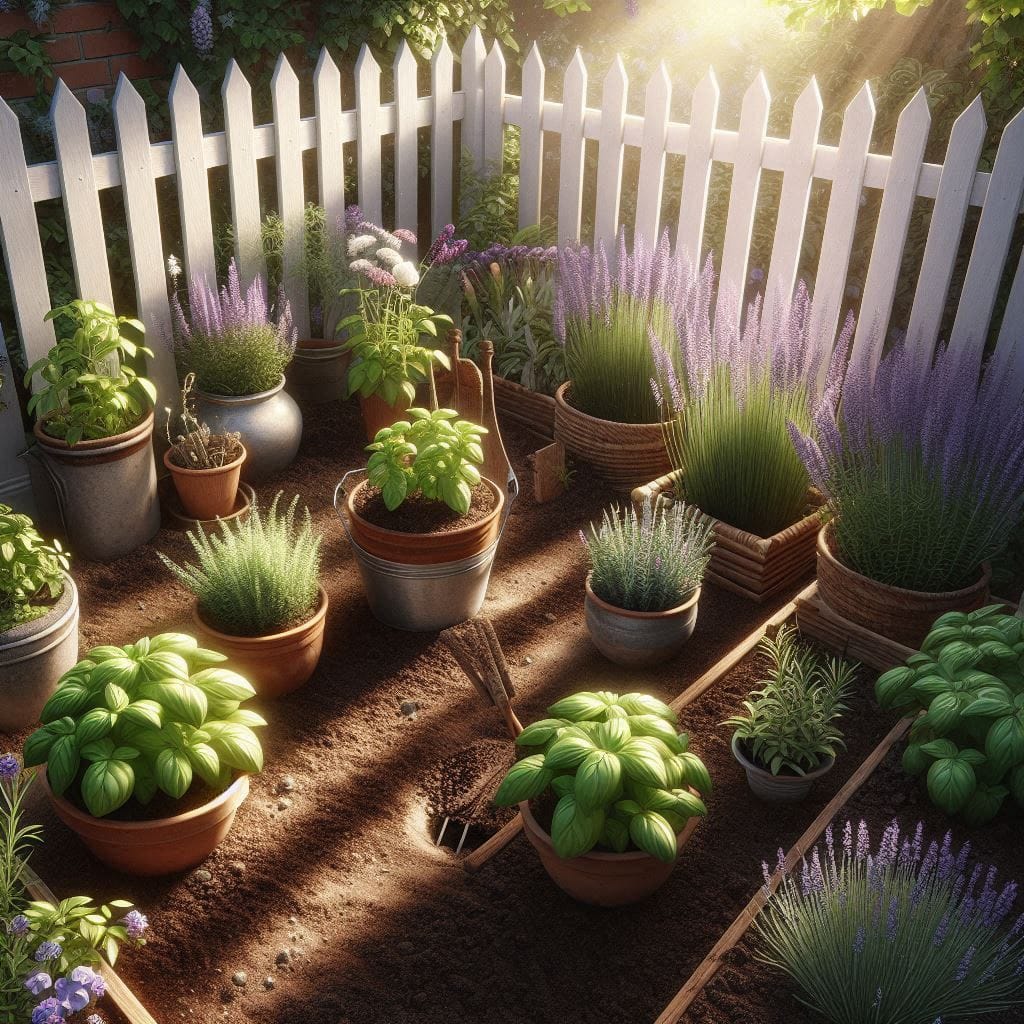
Sunlight Requirements
Most herbs thrive in full sun, so it’s important to pick a spot that gets at least six hours of sunlight each day. If space is limited, consider using containers, which can be moved to ensure they get enough light.
Soil Quality and Drainage
Herbs prefer well-draining soil. Amend the soil with compost or other organic matter to improve its quality. If planting in containers, use a high-quality potting mix to ensure proper drainage.
Space Considerations
When planning your herb garden, think about the available space. You can plant herbs directly in the ground, in raised beds, or in containers. Containers are a great option if you need to move plants to maximize sunlight or if you have limited garden space.
Choosing the right location is crucial for a thriving herb garden. Make sure to consider sunlight, soil quality, and space to set your herbs up for success.
Essential Tools and Materials for Herb Gardening
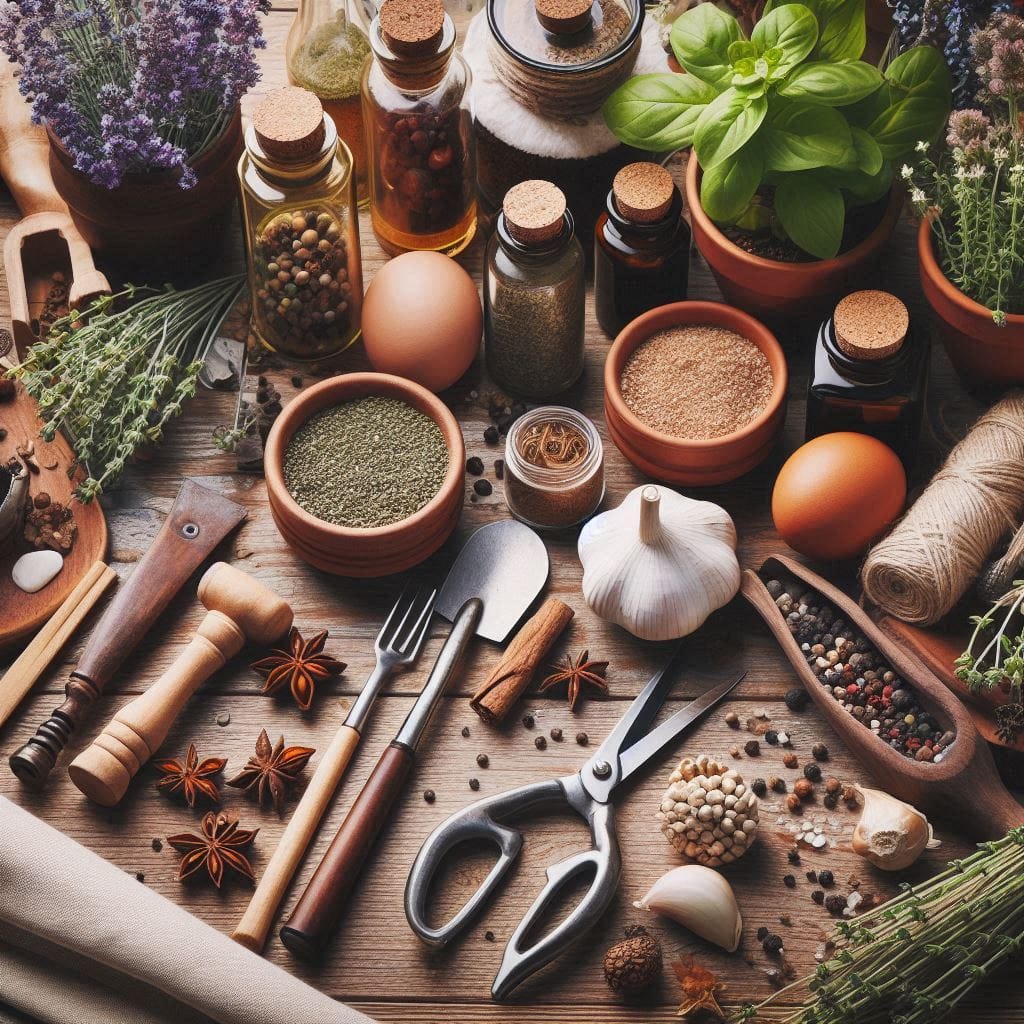
Basic Gardening Tools
To start your herb garden, you’ll need some basic tools. A trowel and garden gloves are essential for planting and protecting your hands. Pruners or scissors are also useful for trimming your herbs. A watering can or hose will help keep your plants hydrated.
Containers and Pots
If you’re growing herbs in containers, choose pots with good drainage. Clay pots are a popular choice, but plastic or metal containers work too. Make sure the pots are large enough for the herbs to grow.
Soil and Fertilizers
Good soil is key to a healthy herb garden. Use a high-quality potting mix or garden soil. Adding compost or organic matter can improve soil quality. Fertilizers can help your herbs grow, but use them sparingly to avoid overfeeding.
Starting an herb garden is a fun and rewarding project. With the right tools and materials, you’ll be on your way to growing fresh herbs in no time!
Selecting the Best Herbs for Beginners
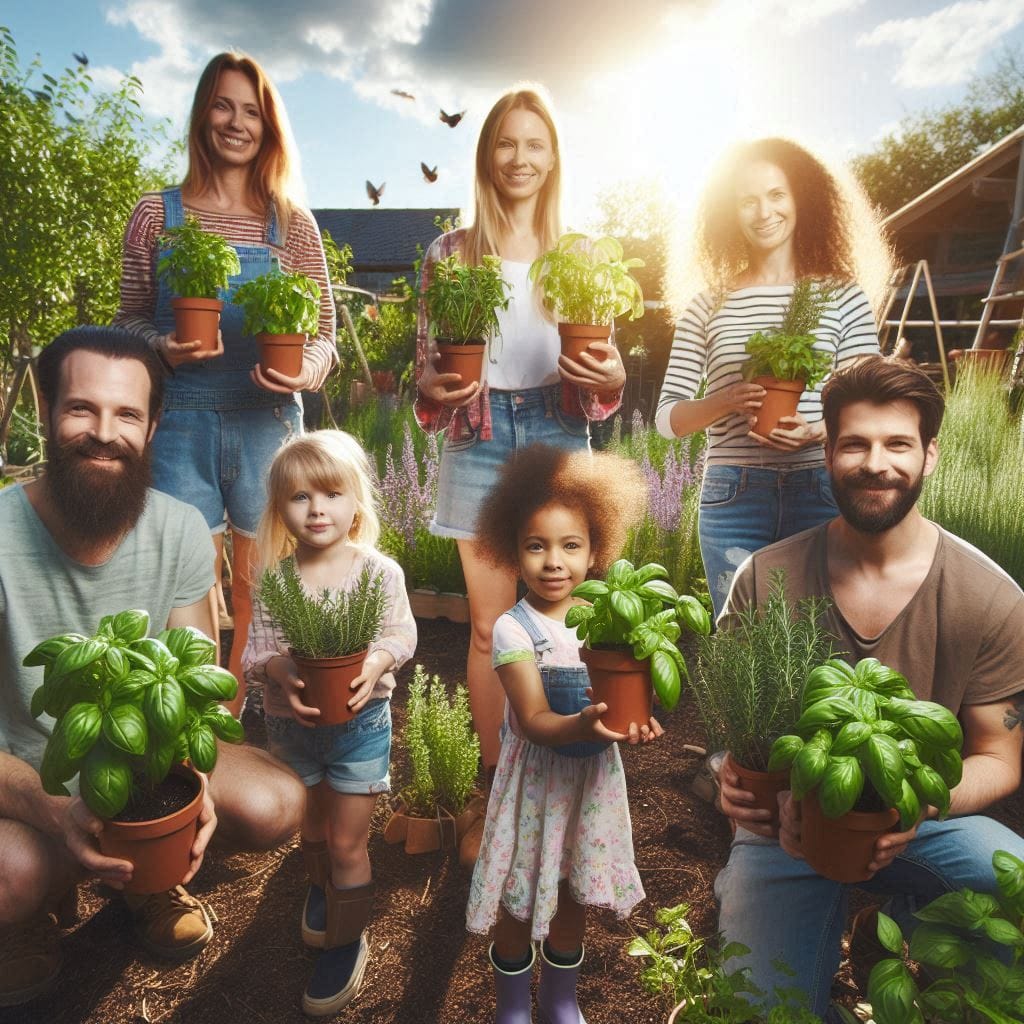
Easy-to-Grow Herbs
Starting with herbs that are simple to grow can make your gardening experience more enjoyable. Basil, cilantro, and chives are excellent choices for beginners. These herbs have watery stems, making them easier to grow from seeds. Additionally, they don’t require much maintenance, which is perfect for those new to gardening.
Herbs for Cooking
When choosing herbs, think about the ones you use most often in your kitchen. Common culinary herbs like rosemary, oregano, basil, and thyme are great to start with. These herbs not only enhance the flavor of your dishes but are also relatively easy to grow. You can always add more varieties as you become more comfortable with herb gardening.
Medicinal Herbs
Some herbs are not only good for cooking but also have medicinal properties. Mint, chamomile, and lavender are popular choices for their health benefits. Mint can help with digestion, chamomile is known for its calming effects, and lavender can be used for its soothing aroma. Growing these herbs can provide you with natural remedies right at your fingertips.
Remember, the best herbs to grow are the ones you will actually use. Start with a few and expand your garden as you gain more confidence.
Planting and Caring for Your Herbs
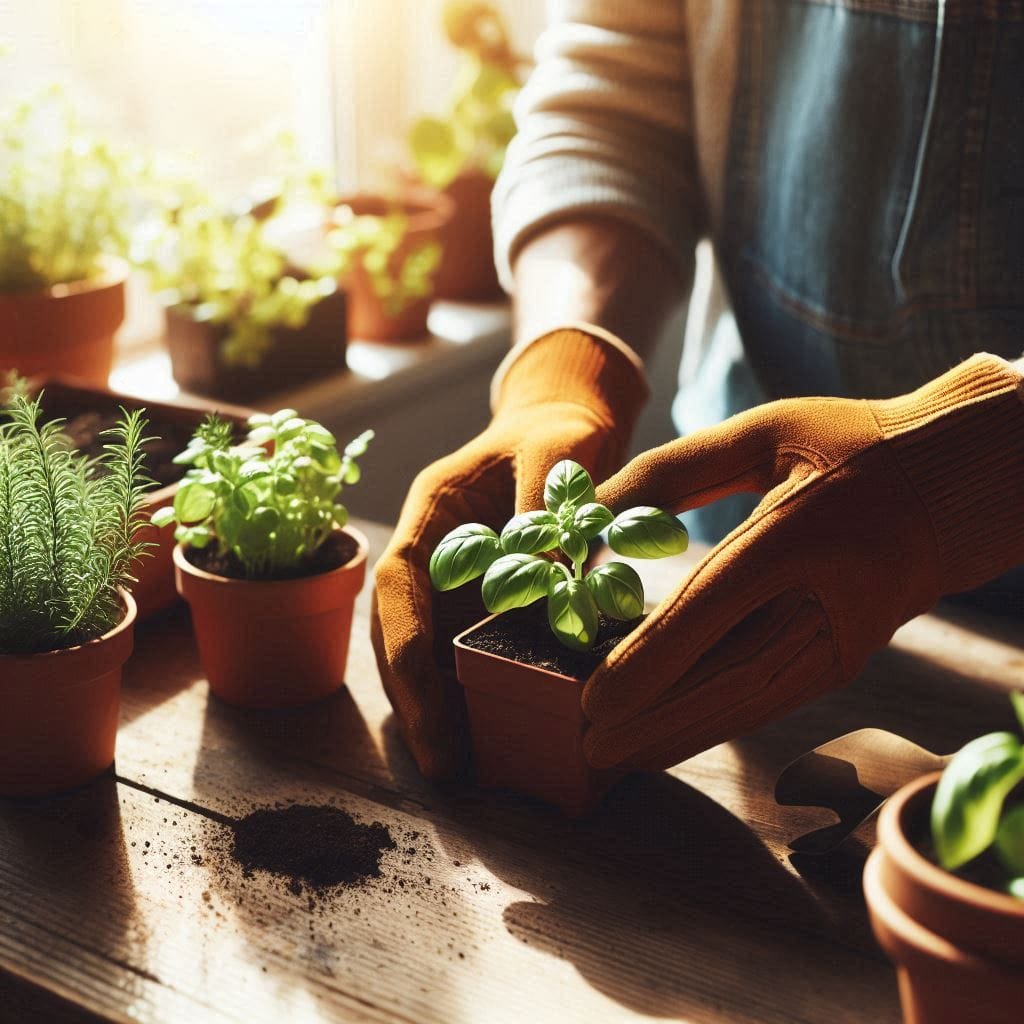
Planting Techniques
When planting your herbs, it’s important to follow the specific needs of each type. Some herbs, like thyme, need light to germinate and should not be covered with soil. Always check the seed packet for specific instructions. If you’re transplanting seedlings, dig a hole that’s twice the size of the root ball and place the plant in it, then cover with soil and gently press down.
Watering and Feeding
Water your herbs regularly, especially when they are newly planted. Use a watering can to gently saturate the soil until it’s moist but not soggy. Base watering can be beneficial for some herbs; place the pots in a tray filled with water so the soil can absorb it from the bottom. Check the soil every few days to ensure it doesn’t dry out completely. Feed your herbs with a slow-release vegetable and herb fertilizer each season to keep them healthy.
Pruning and Harvesting
Pruning your herbs encourages growth and keeps them healthy. Regularly trim the tops of your plants to prevent them from becoming leggy. Harvest your herbs in the morning after the dew has dried but before the sun gets too hot. This is when the essential oils are at their peak. Preserve your harvest by drying or freezing the herbs for later use.
Keeping your herbs well-maintained ensures a bountiful and healthy garden. Regular care and attention will reward you with fresh, flavorful herbs all season long.
Dealing with Common Herb Garden Pests and Diseases
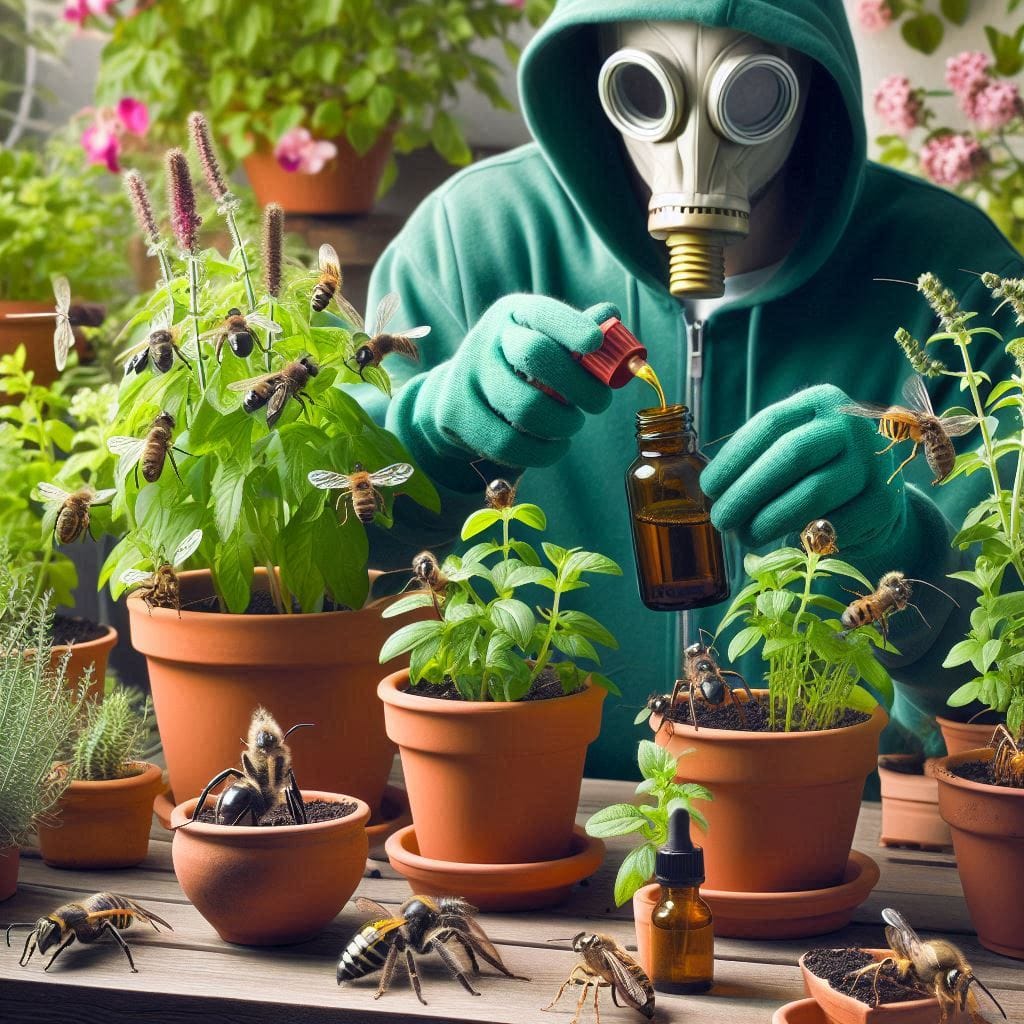
Identifying Common Pests
Herb gardens can attract a variety of pests. Some of the most common ones include aphids, spider mites, and whiteflies. Recognizing these pests early can save your herbs from severe damage. Look for signs like yellowing leaves, tiny webs, or clusters of small insects on the underside of leaves.
Natural Pest Control Methods
Using natural methods to control pests is both eco-friendly and effective. Here are some strategies:
- Introduce beneficial insects like ladybugs and lacewings that prey on harmful pests.
- Use neem oil or insecticidal soap to treat affected plants.
- Plant companion herbs like basil and marigold that repel pests.
Regularly inspecting your herb garden can help you catch pest problems early and manage them before they spread.
Preventing Diseases
Keeping your herb garden healthy involves more than just pest control. Preventing diseases is equally important. Ensure good air circulation by spacing plants properly and avoid overhead watering to reduce the risk of fungal infections. Healthy soil leads to healthy plants, so enrich your soil with compost and organic matter.
By following these steps, you can maintain a thriving herb garden free from pests and diseases.
Indoor vs. Outdoor Herb Gardens
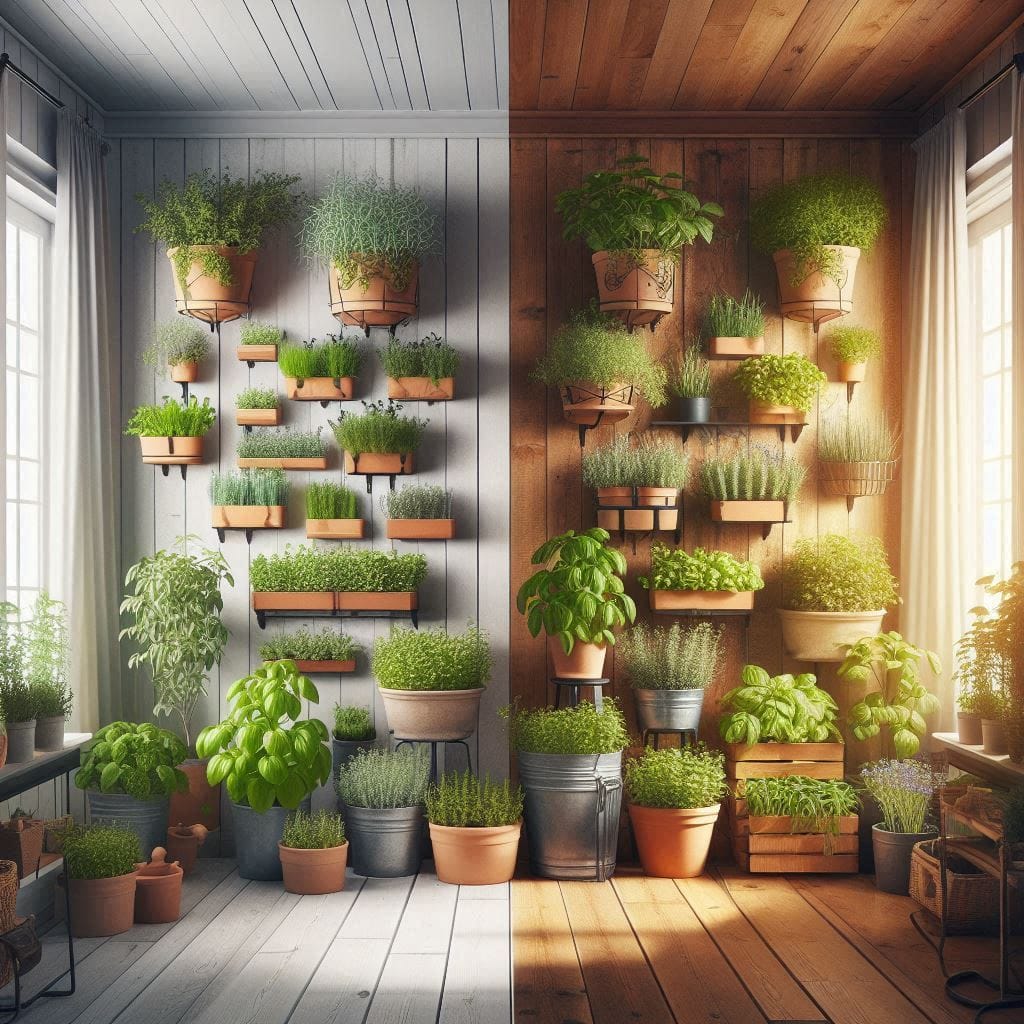
Benefits of Indoor Herb Gardens
Growing herbs indoors offers several advantages. You can control the environment, ensuring your herbs get the right amount of light, water, and temperature. Indoor herb gardens are perfect for those who live in apartments or places with limited outdoor space. Additionally, you can grow herbs year-round, regardless of the season.
Benefits of Outdoor Herb Gardens
Outdoor herb gardens allow your plants to grow in their natural environment. They often receive more sunlight and can grow larger than indoor plants. Outdoor gardens also provide better air circulation, which can help prevent diseases. Plus, having an outdoor garden can enhance the beauty of your yard and attract beneficial insects.
Transitioning Herbs from Indoors to Outdoors
When moving herbs from indoors to outdoors, it’s important to do so gradually. Start by placing the plants outside for a few hours each day, gradually increasing the time over a week or two. This helps the herbs acclimate to the new environment and reduces the risk of shock. Make sure to choose a spot with the right amount of sunlight and good soil drainage.
Creative Ways to Use Your Homegrown Herbs
Culinary Uses
Homegrown herbs can transform your cooking. Fresh herbs add vibrant flavors to your dishes that dried ones just can’t match. Try adding basil to your pasta, rosemary to your roasted potatoes, or mint to your salads. You can also make your own herb-infused oils and vinegars for a gourmet touch.
Herbal Teas and Infusions
Making herbal teas is a delightful way to use your herbs. Simply steep fresh or dried herbs in hot water. Popular choices include mint, chamomile, and lemon balm. Herbal infusions can also be used in baths for a relaxing experience.
DIY Herbal Products
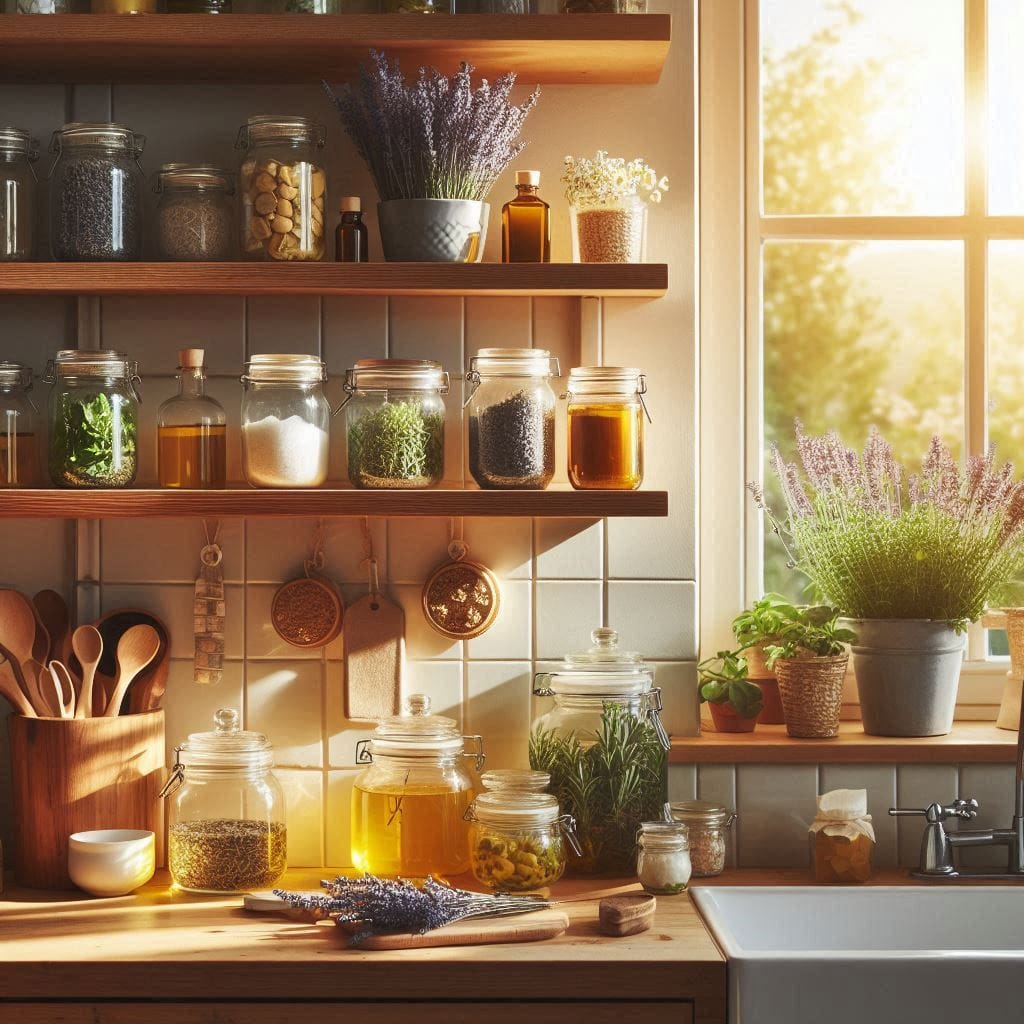
Your homegrown herbs can be used to create a variety of DIY products. Make your own herbal salves, tinctures, and balms. You can also craft herbal soaps and candles. These make great gifts and are a wonderful way to enjoy the benefits of your herbs year-round.
Growing your own herbs not only enhances your meals but also provides natural ingredients for health and wellness products.
Conclusion
Starting your own herb garden can be a fun and rewarding experience. With a bit of planning and care, you can grow a variety of herbs that will add fresh flavors to your meals and beauty to your home. Remember to choose the right spot with plenty of sunlight, use well-drained soil, and pick herbs that are easy to grow for beginners. Whether you have a big backyard or just a small balcony, you can create a thriving herb garden. Happy gardening!
Frequently Asked Questions
What are the best herbs for beginners to grow?
Some of the easiest herbs to start with are basil, mint, parsley, and chives. They grow quickly and don’t need a lot of special care.
How much sunlight do my herbs need?
Most herbs need about 6 hours of sunlight each day. Choose a sunny spot in your garden or near a window if you’re growing them indoors.
Can I grow herbs indoors?
Yes, you can grow herbs indoors. Just make sure they get enough sunlight and are planted in well-draining soil.
How often should I water my herb garden?
Water your herbs when the soil feels dry to the touch. Be careful not to overwater, as this can cause the roots to rot.
What kind of soil is best for growing herbs?
Herbs prefer well-draining soil. You can use a mix of potting soil and sand to improve drainage.
How do I keep pests away from my herb garden?
You can use natural methods like neem oil or insecticidal soap to keep pests away. Regularly check your plants for signs of pests and remove any you find.


